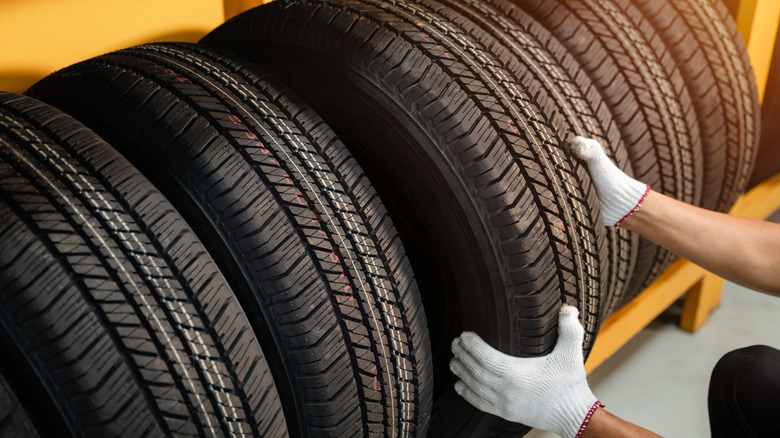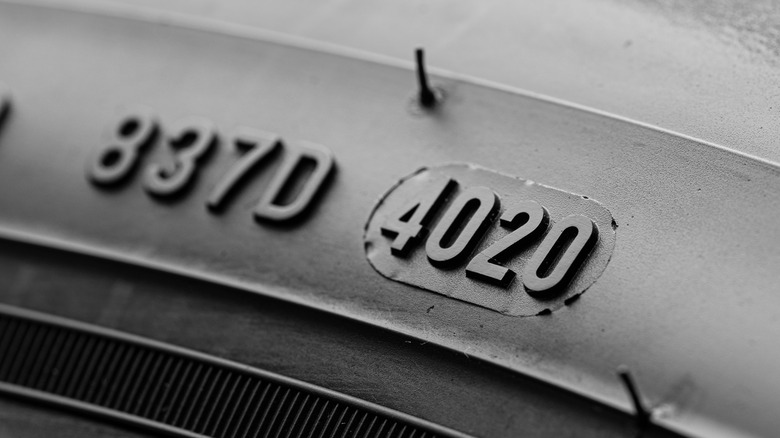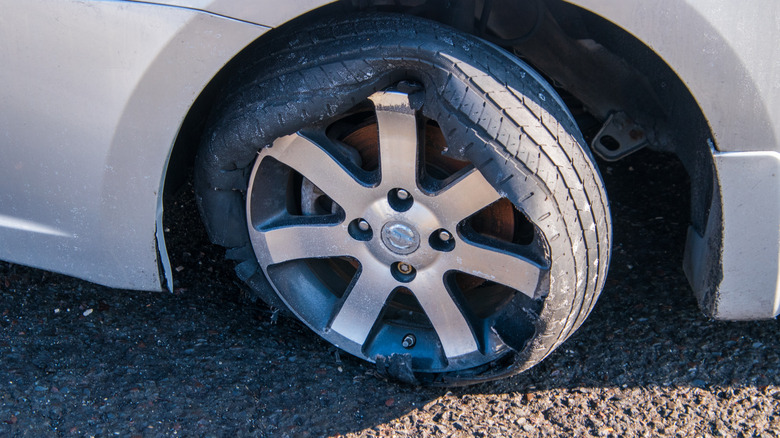Are Old Car Tires Still Safe? Here's What You Need To Know
As easy as it is to think of your car as a single cohesive whole, it's made up of so many interlocking parts and components, each of which needs to function properly, or the whole thing falls apart. Ideally, those parts will keep working in tandem properly, and you'll never have to think about fixing or replacing them, though unfortunately, even that ideal state can't last forever.
For example, if your car's tires aren't flat, tearing, or otherwise failing, you'd probably just keep using them indefinitely, right? But as the parts of your car that have the most consistent contact with the road, especially rough terrain, tires endure a lot of punishment over the years. Even if their integrity isn't completely compromised, time takes its toll. If you've been driving on the same tires for many years, even if they've never needed to be patched or replaced, you might want to schedule a wheel checkup anyway because they could go at any time.
Do tires have an expiration date?
Strictly speaking, car tires don't have a hard and fast expiration date, at least not in the same way as a bag of popcorn in your pantry. Rather than strict dates, every tire has a serial number printed on its surface somewhere that indicates the week and year it was manufactured. For example, if you find a code on your tire that reads "3019," that would mean the tire was manufactured in week 30 of 2019.
The National Highway Traffic Safety Administration recommends that all tires be changed out after around five or six years of continuous usage. However, individual manufacturers may have slightly looser recommendations of around 10 years. Either way, the point is that it's not a good idea to keep using the same tires if you've already been using them for more than half a decade. The consequences of doing so may not be readily apparent, but when they do appear, they appear with a vengeance.
What can happen if you drive on old tires
As you drive repeatedly on the same tires over multiple years, the rubber that makes the tires up gradually starts to wear out, which can have several potentially dangerous knock-on effects.
First, old tires are worse at holding air. Due to their warping shape, outdated tires can leak air out of their valve more easily, leading to reduced road control and greater wear and tear on your wheels.
Second, older tires are more prone to punctures and blowouts. Thicker tires can endure the errant poke of a nail on the road, but as the rubber wears, sharp objects are more likely to pierce right to a tire's vital center, giving you a flat in the best case and a complete tire failure in the worst case.
Finally, old tires are harder to stop on. Worn, flattened tires lose their proper grip, which can cause you to skid further when stopping, even if you aren't going that fast. That reduced grip also increases the likelihood of hydroplaning on wet terrain, which could send you sliding down a hill on a rainy day.
The likelihood of all of these effects increases as a tire ages, so do yourself a favor and swap them out every few years.


